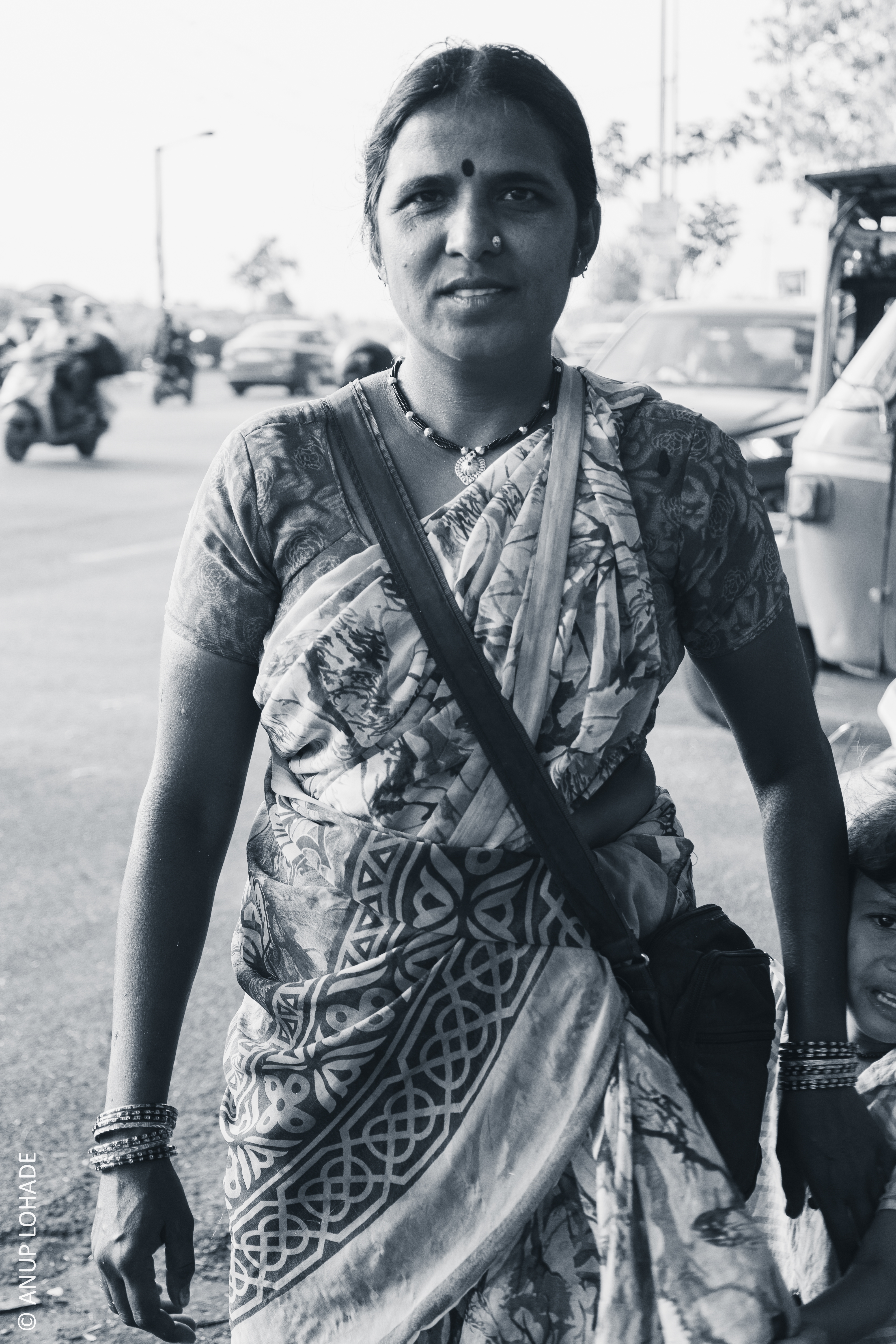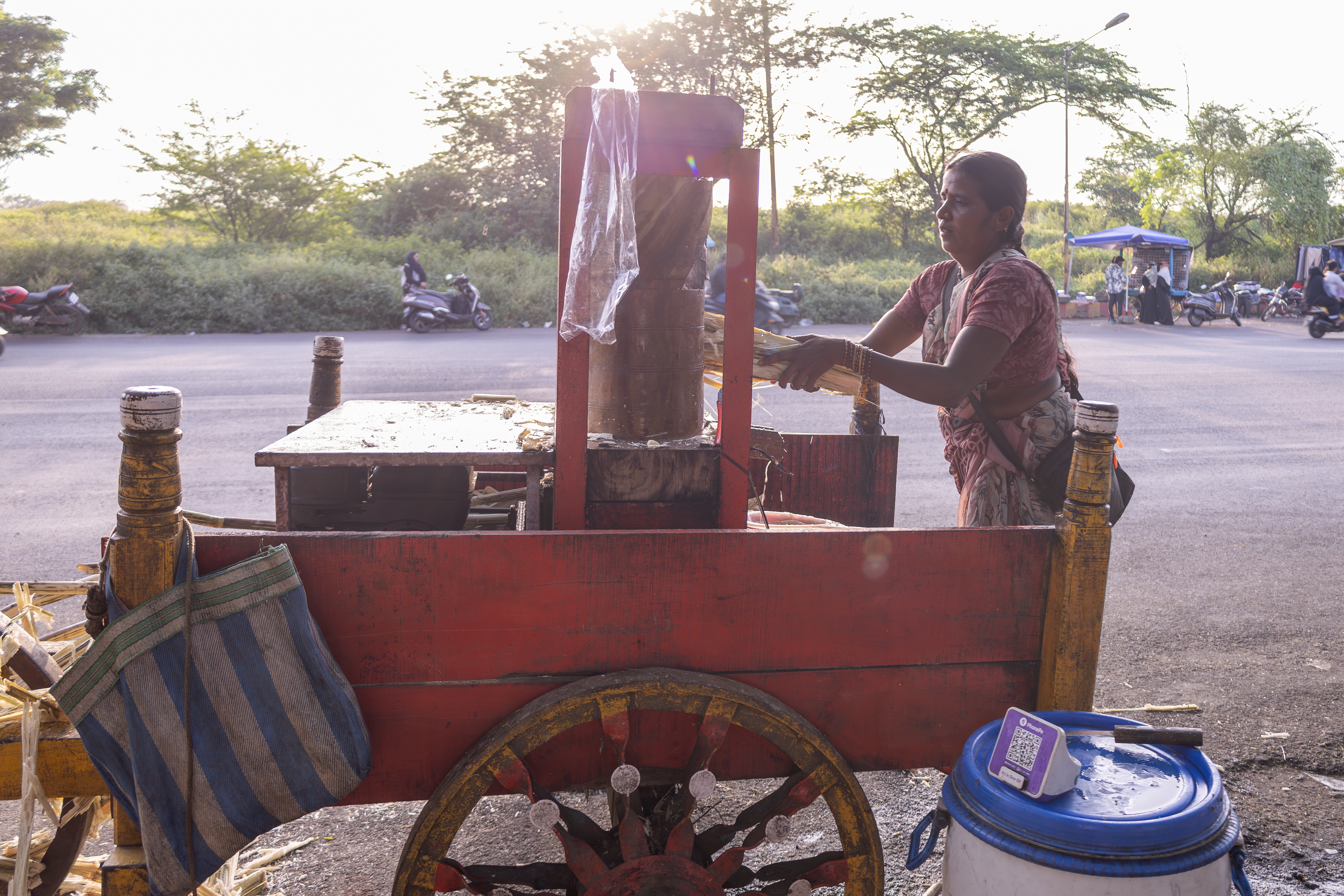Sun at Her Back: Usha’s Two-Decade Grind at a Roadside Sugarcane Cart
Usha left Paithan with her husband and two children twenty-two years ago, trading a small-town certainty for the open-ended promise of Pune, and each afternoon she turns a red wooden press by the highway shoulder, feeding in stalks that squeal and split into a green stream of juice, a handful of ice, and the instant relief of sweetness. The cart is her workshop and her shelter—though it shelters little: no tarp wide enough to shade the crank, no awning to blunt the glare—so she times her breaks to the brief mercy of clouds, wraps a dupatta against the heat, and keeps working as motorbikes spit dust across the rims of rinsed glasses. Suppliers arrive with bundles that she weighs by feel; if the fiber is young, the crush runs clean, if it’s old, she adds a hint of lemon and ginger to brighten the flavor, a small calculus that keeps regulars returning after long commutes. The day’s risks are unremarkable and relentless—police warnings about pavement use, a sudden stall seizure during drives, cash lost to a spoiled stack when rain sneaks under the plastic, and the fatigue of endless standing—but the margins are built one cup at a time, enough to stretch school fees, to mend a motor, to keep the family’s move from Paithan from becoming a circle back. In a city that grows upward and outward at once, Usha’s cart marks time horizontally: shadows crawl from wheel to wheel, the press ticks into muscle memory, and by dusk her wrists ache in the good way—honest work counted in rotations, not receipts. When the sun finally dips behind a tangle of branches and hoardings, she wipes the blade, straightens the bottles, and watches the road ease; tomorrow she will return to the same patch of asphalt and light, proof that constancy can be a kind of courage, and that a simple cup of cane juice can still anchor a family’s hope.

